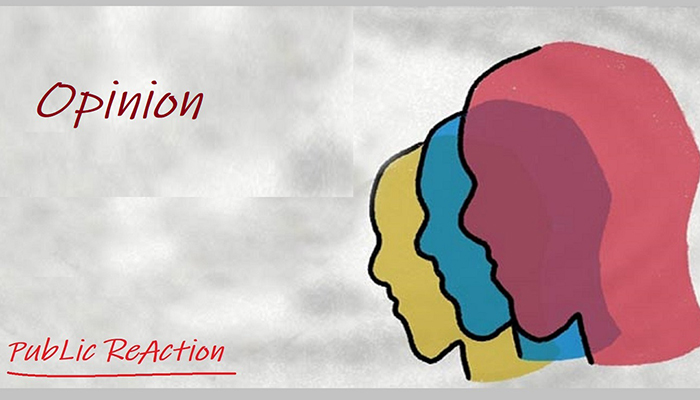


Catastrophe occurred on August 15, 1975. The day was Friday. On this holy day of Muslims, the killers committed brutal murders. The massacre was planned, determined and far-reaching. The tragic and brutal assassination of 18 individuals, including the Father of the Nation, Bangabandhu Sheikh Mujibur Rahman, along with his family members and close relatives on August 15, 1975, was not merely the act of a few rogue military personnel. Instead, it was the result of a meticulously orchestrated plan aimed at seizing state power through violent means. This coup, carried out with the Bangladesh Army’s weapons, ammunition, and tanks by a faction of soldiers, was supported by influential figures within and outside the military. These conspirators later assumed power and played pivotal roles in steering the state away from the ideological foundations of the Liberation War.
In the years following 1975, various fabricated narratives about this assassination were propagated in politics and society. Those who rejected this distortion of history were systematically excluded from politics, administration, education, culture, and social life. The entire state apparatus was turned upside down, and the constitution was severely compromised. The secular and Bengali nationalist principles that were fundamental to the state were replaced with ideologies that sought to turn Bangladesh into a second Pakistan—an outcome diametrically opposed to the values of the Liberation War.
This brutal coup and the subsequent spread of slander against Bangabandhu and his family were part of a deliberate effort to diminish his role and that of his political party in nation-building during and after the Liberation War. Building a newly independent, war-torn state was an immense challenge, yet it was Bangabandhu’s leadership that made it possible for Bangladesh to rise to this challenge. The central bank of Bangladesh was left without any domestic or foreign currency, and the country lacked the resources to meet the basic needs of its 75 million people, including food, clothing, education, healthcare, and shelter. Gaining international recognition and cooperation was a daunting task, yet Bangabandhu’s leadership ensured that these were achieved.
In a remarkably short period, Bangabandhu succeeded in stabilizing the heated political climate, facilitating the honorable withdrawal of Indian military forces, rehabilitating one crore returnees from India, and repatriating four lakh Bengalis from Pakistan. He laid the groundwork for the country by drafting a constitution, formulating economic plans, and creating an education policy for the new state of Bangladesh. His foreign policy, based on “friendship with all, enmity with none,” reflected his vision of a peaceful and cooperative global order. Domestically, he aimed to reform the agricultural system, utilize land and human resources, and liberalize industry, trade, and commerce to foster economic growth. His vision was to establish a non-exploitative, welfare-oriented society that he described as “Sonar Bengal” (Golden Bengal).
Bangabandhu’s socialism was not imported from other nations but was rooted in the unique cultural, social, and environmental context of Bangladesh. He aspired to create a “Switzerland of the East,” a modern welfare state that would embody the aspirations of its people. He was committed to building a new educational system that would foster the development of “golden people” to achieve his vision of a Golden Bengal. His political genius and unwavering dedication were evident in his efforts to build a modern, welfare-oriented state. He needed time to fully realize this vision, but his innovative leadership made him fearless in confronting the challenges of nation-building in a war-torn country.
Bangabandhu’s life and political career demonstrate his unwavering dedication to his people and his nation. From his early involvement in student politics during the anti-British independence movement in Calcutta to his leadership in the fight for the socio-economic, political, educational, and cultural rights of the people of East Bengal, Bangabandhu’s commitment to his people was unmatched. The partition of India in 1947 did not align with his political vision, and when Pakistan emerged as a colonial state, he dedicated himself to the struggle for the rights of East Bengal. His leadership in the Awami League and his relentless pursuit of the 6-Point Program eventually transformed the political movement in East Bengal into a struggle for independence. Even during his imprisonment in Pakistan, he remained the undisputed leader of the independence movement in the hearts of the people.
Upon his return to an independent Bangladesh, Bangabandhu continued to work tirelessly to build the nation. His vision extended beyond the borders of Bangladesh as he aligned himself with the struggle for economic liberation of newly independent countries. He repeatedly called on global powers to halt the proliferation of weapons and to invest in fighting hunger and improving the lives of poor people worldwide. His efforts earned him the Julio-Curie Medal from the World Peace Council. As a leader of the Non-Aligned Movement, Bangabandhu played a pivotal role in uniting Third World countries during a time when the world was divided between capitalist and socialist blocs.
Bangabandhu’s leadership elevated Bangladesh’s status on the international stage, and his vision of a welfare state could have served as a model for the world if he had been given the time and opportunity to realize it. However, his vision was met with resistance from both domestic and international forces who sought to maintain the status quo. Foreign countries and organizations, uncomfortable with the empowerment of freedom fighters in Third World countries, played a role in undermining Bangabandhu’s government. Conspirators within Bangladesh, in collusion with these external forces, orchestrated the bloody events of August 15, 1975, leading to the tragic loss of Bangabandhu and the derailment of Bangladesh’s democratic and secular aspirations.
Today, Bangladesh remains divided in its memory of August 15th. While some mourn the tragic loss and the betrayal of the Liberation War’s ideals, others remain silent, reflecting a deep and devastating division within the nation.
(PID Feature)